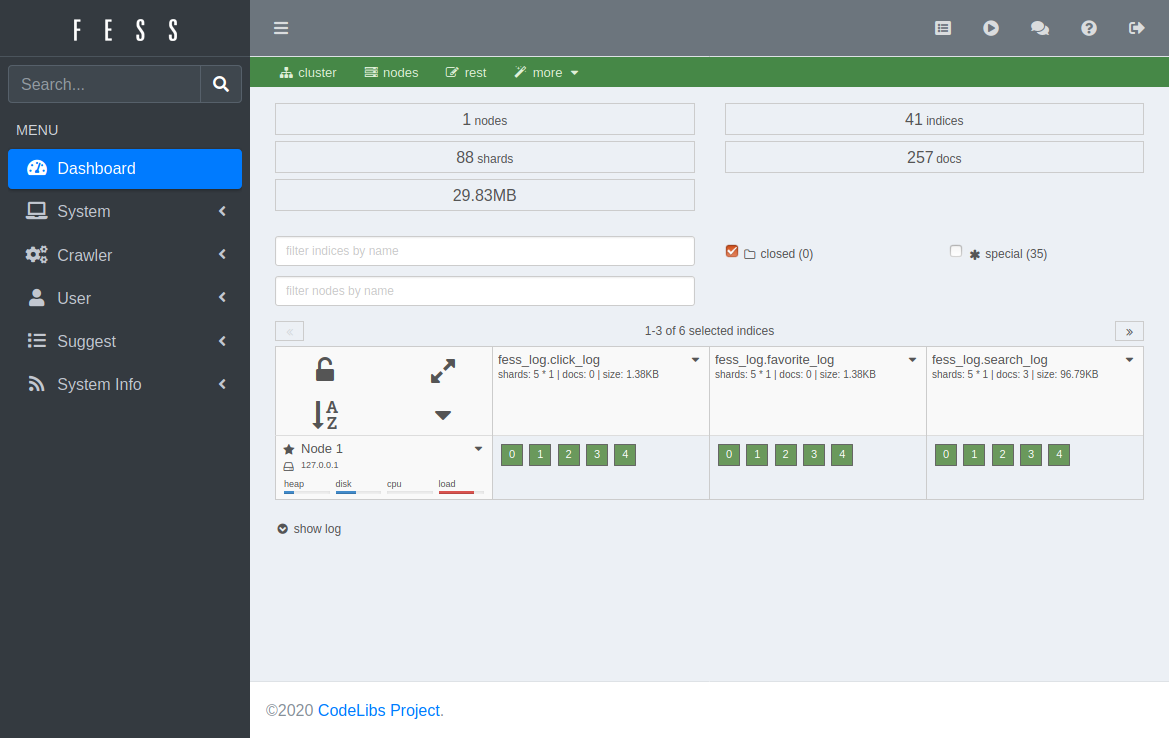- Sort Score
- Result 10 results
- Languages All
Results 221 - 230 of 467 for registar (0.07 sec)
-
src/cmd/asm/internal/asm/line_test.go
{"VADDPD.SAE.SAE X0, X1, X2", `duplicate suffix "SAE"`}, {"VADDPD.RZ_SAE.SAE X0, X1, X2", `bad suffix combination`}, // BSWAP on 16-bit registers is undefined. See #29167, {"BSWAPW DX", `unrecognized instruction`}, {"BSWAPW R11", `unrecognized instruction`}, }) } func testBadInstParser(t *testing.T, goarch string, tests []badInstTest) {Registered: Tue Nov 05 11:13:11 UTC 2024 - Last Modified: Tue Aug 29 07:48:38 UTC 2023 - 1.9K bytes - Viewed (0) -
src/main/java/org/codelibs/fess/ds/AbstractDataStore.java
protected static final String SCRIPT_TYPE = "script_type"; public String mimeType = "application/datastore"; protected boolean alive = true; public void register() { ComponentUtil.getDataStoreFactory().add(getName(), this); } protected abstract String getName(); @Override public void stop() { alive = false; }Registered: Thu Oct 31 13:40:30 UTC 2024 - Last Modified: Thu Feb 22 01:37:57 UTC 2024 - 6.3K bytes - Viewed (0) -
docs/en/docs/tutorial/handling-errors.md
So, you can keep raising **FastAPI**'s `HTTPException` as normally in your code. But when you register an exception handler, you should register it for Starlette's `HTTPException`. This way, if any part of Starlette's internal code, or a Starlette extension or plug-in, raises a Starlette `HTTPException`, your handler will be able to catch and handle it.
Registered: Sun Nov 03 07:19:11 UTC 2024 - Last Modified: Sun Oct 06 20:36:54 UTC 2024 - 9.1K bytes - Viewed (0) -
docs/en/docs/advanced/openapi-webhooks.md
And **your users** define in some way (for example in a web dashboard somewhere) the **URL** where your app should send those requests. All the **logic** about how to register the URLs for webhooks and the code to actually send those requests is up to you. You write it however you want to in **your own code**. ## Documenting webhooks with **FastAPI** and OpenAPI
Registered: Sun Nov 03 07:19:11 UTC 2024 - Last Modified: Mon Oct 28 10:38:23 UTC 2024 - 2.8K bytes - Viewed (0) -
build-logic/buildquality/src/test/kotlin/gradlebuild/testcleanup/TestFilesCleanupServiceTest.kt
} protected override fun createTestExecutionSpec() = object: TestExecutionSpec {} } fun Project.registerTestWithLeftover() { tasks.register<TestWithLeftover>("test") { binaryResultsDirectory.set(project.layout.buildDirectory.dir("binaryResultsDirectory")) reports.html.outputLocation.set(project.layout.buildDirectory.dir("reports"))Registered: Wed Nov 06 11:36:14 UTC 2024 - Last Modified: Wed Jun 14 12:35:52 UTC 2023 - 10.6K bytes - Viewed (0) -
build-logic-commons/publishing/src/main/kotlin/gradlebuild.publish-public-libraries.gradle.kts
dependsOn("signGradleDistributionPublication") } } } /** * Tasks that are called by the (currently separate) promotion build running on CI. */ tasks.register("promotionBuild") { description = "Build production distros, smoke test them and publish" group = "publishing" dependsOn(":packageBuild", ":publishBuildLogic", "publish")
Registered: Wed Nov 06 11:36:14 UTC 2024 - Last Modified: Thu Sep 19 13:21:47 UTC 2024 - 5.9K bytes - Viewed (0) -
cmd/kms-router.go
) const ( kmsPathPrefix = minioReservedBucketPath + "/kms" kmsAPIVersion = "v1" kmsAPIVersionPrefix = SlashSeparator + kmsAPIVersion ) type kmsAPIHandlers struct{} // registerKMSRouter - Registers KMS APIs func registerKMSRouter(router *mux.Router) { kmsAPI := kmsAPIHandlers{} kmsRouter := router.PathPrefix(kmsPathPrefix).Subrouter() KMSVersions := []string{ kmsAPIVersionPrefix, }
Registered: Sun Nov 03 19:28:11 UTC 2024 - Last Modified: Tue May 07 23:55:37 UTC 2024 - 2.7K bytes - Viewed (0) -
docs/pt/docs/how-to/custom-request-and-route.md
* Converter requisições não-JSON para JSON (por exemplo, <a href="https://msgpack.org/index.html" class="external-link" target="_blank">`msgpack`</a>). * Descomprimir corpos de requisição comprimidos com gzip. * Registrar automaticamente todos os corpos de requisição. ## Manipulando codificações de corpo de requisição personalizadas Vamos ver como usar uma subclasse personalizada de `Request` para descomprimir requisições gzip.
Registered: Sun Nov 03 07:19:11 UTC 2024 - Last Modified: Tue Oct 22 17:33:00 UTC 2024 - 4.9K bytes - Viewed (0) -
okhttp/build.gradle.kts
id("org.jetbrains.dokka") id("com.vanniktech.maven.publish.base") id("binary-compatibility-validator") } // Build & use okhttp3/internal/-InternalVersion.kt val copyKotlinTemplates = tasks.register<Copy>("copyKotlinTemplates") { from("src/main/kotlinTemplates") into("$buildDir/generated/sources/kotlinTemplates") expand("projectVersion" to project.version) filteringCharset = Charsets.UTF_8.toString() }
Registered: Fri Nov 01 11:42:11 UTC 2024 - Last Modified: Thu Jan 04 05:32:07 UTC 2024 - 5.6K bytes - Viewed (0) -
README.md
- Admin UI: http://localhost:8080/admin/ (default username/password is admin/admin)  You can register crawling targets in the Admin UI on the (Web, File, Data Store) crawler configuration pages, and then start the Crawler manually on the [Scheduler page](https://fess.codelibs.org/14.17/admin/scheduler-guide.html).
Registered: Thu Oct 31 13:40:30 UTC 2024 - Last Modified: Sat Oct 12 07:19:47 UTC 2024 - 7.3K bytes - Viewed (0)